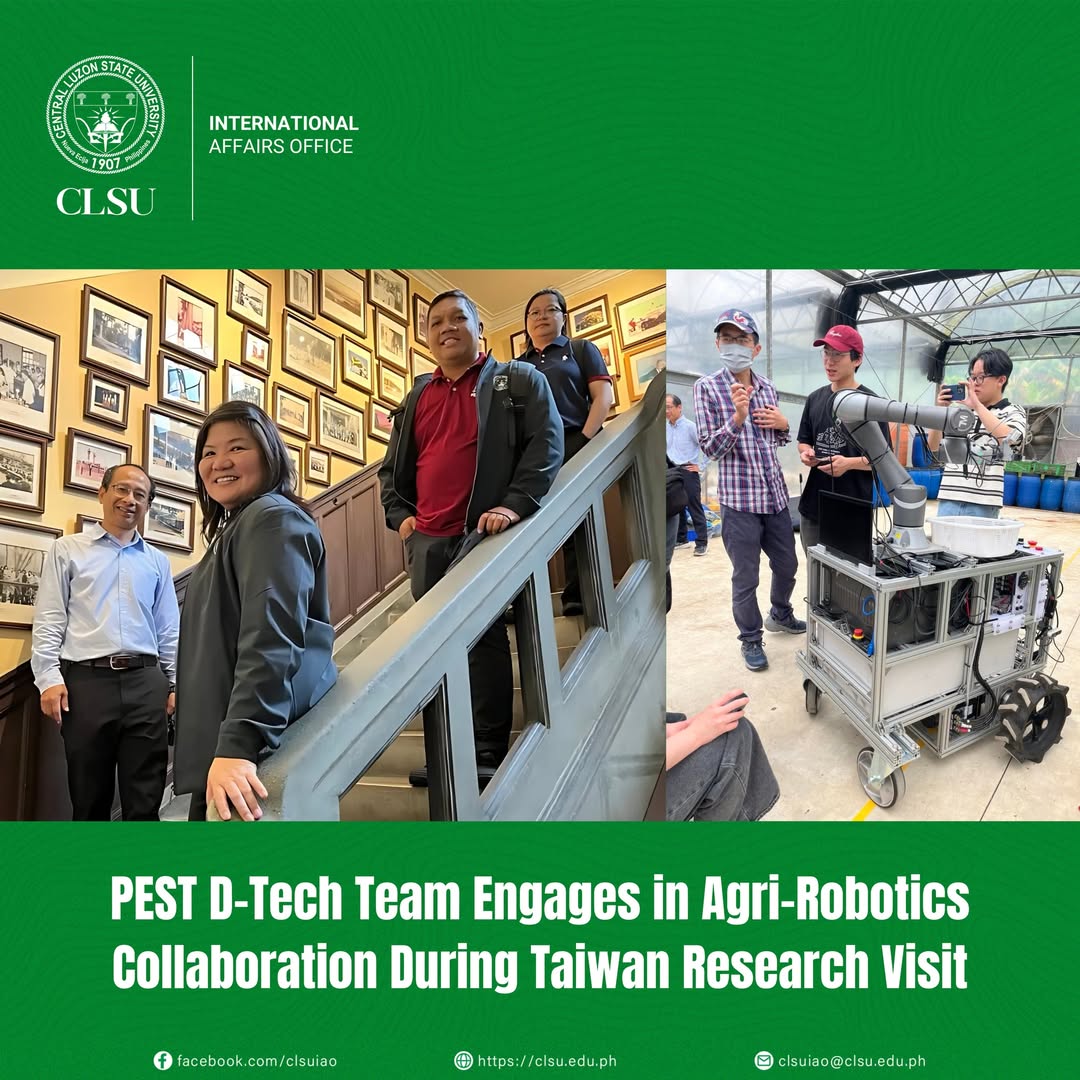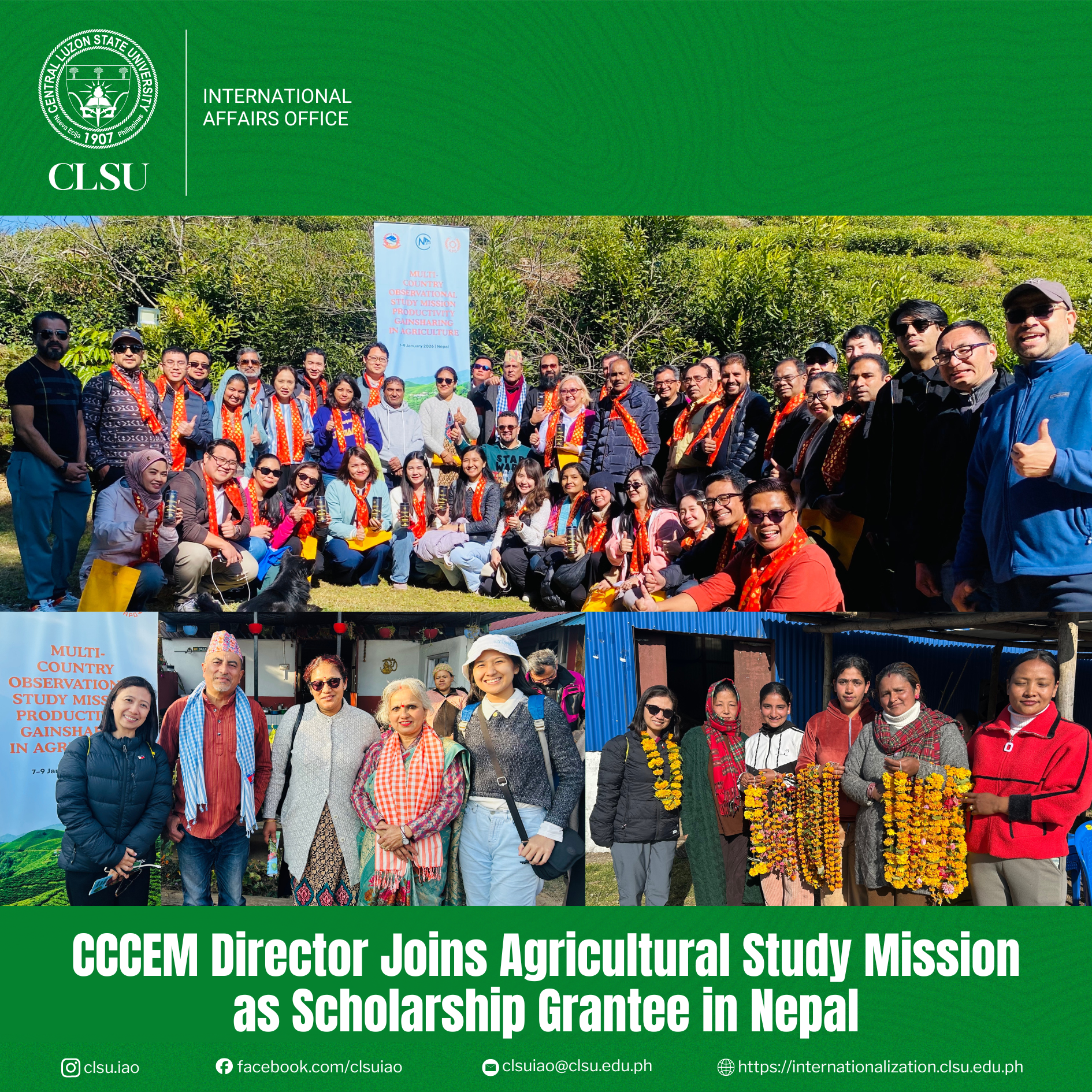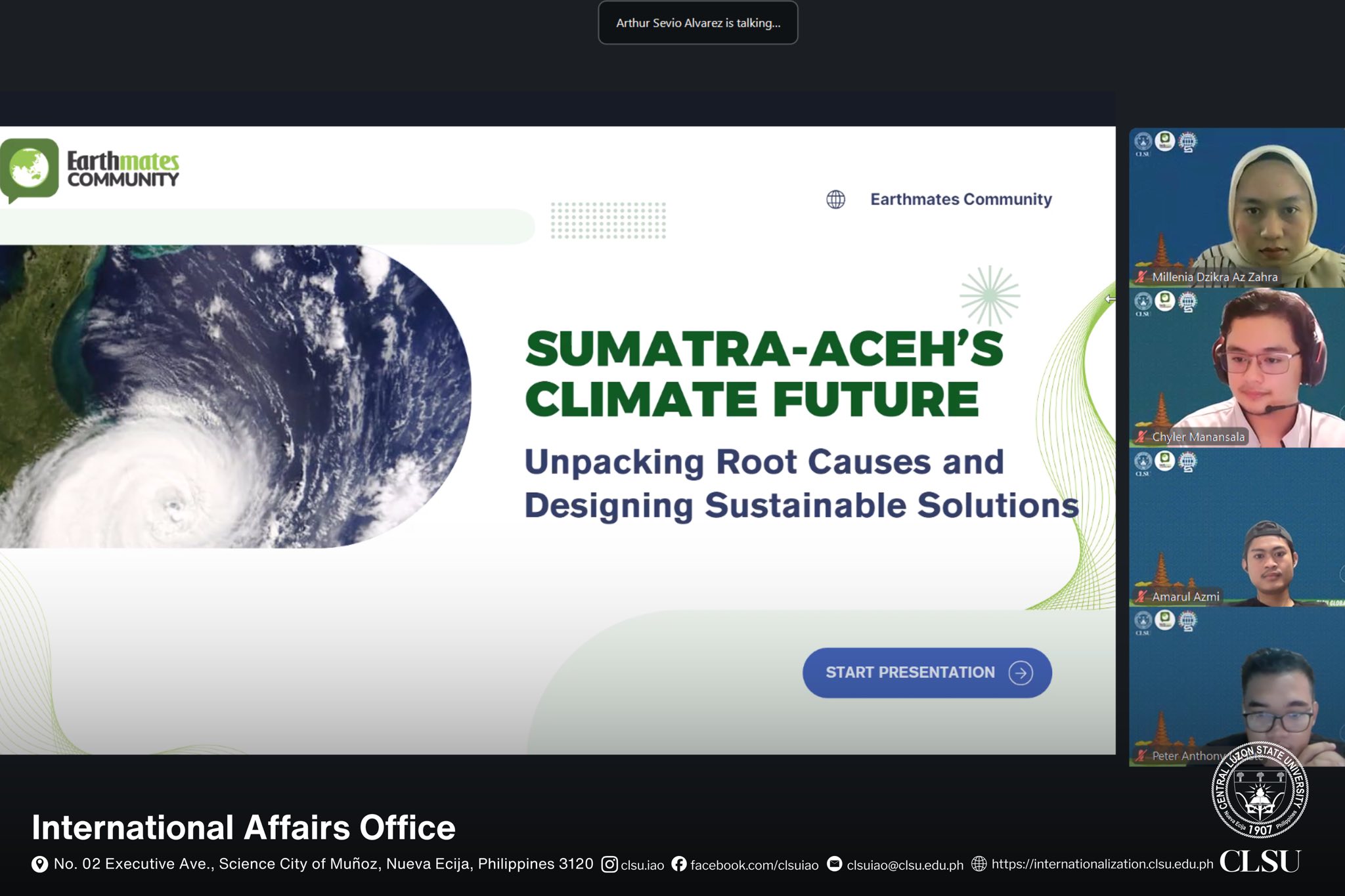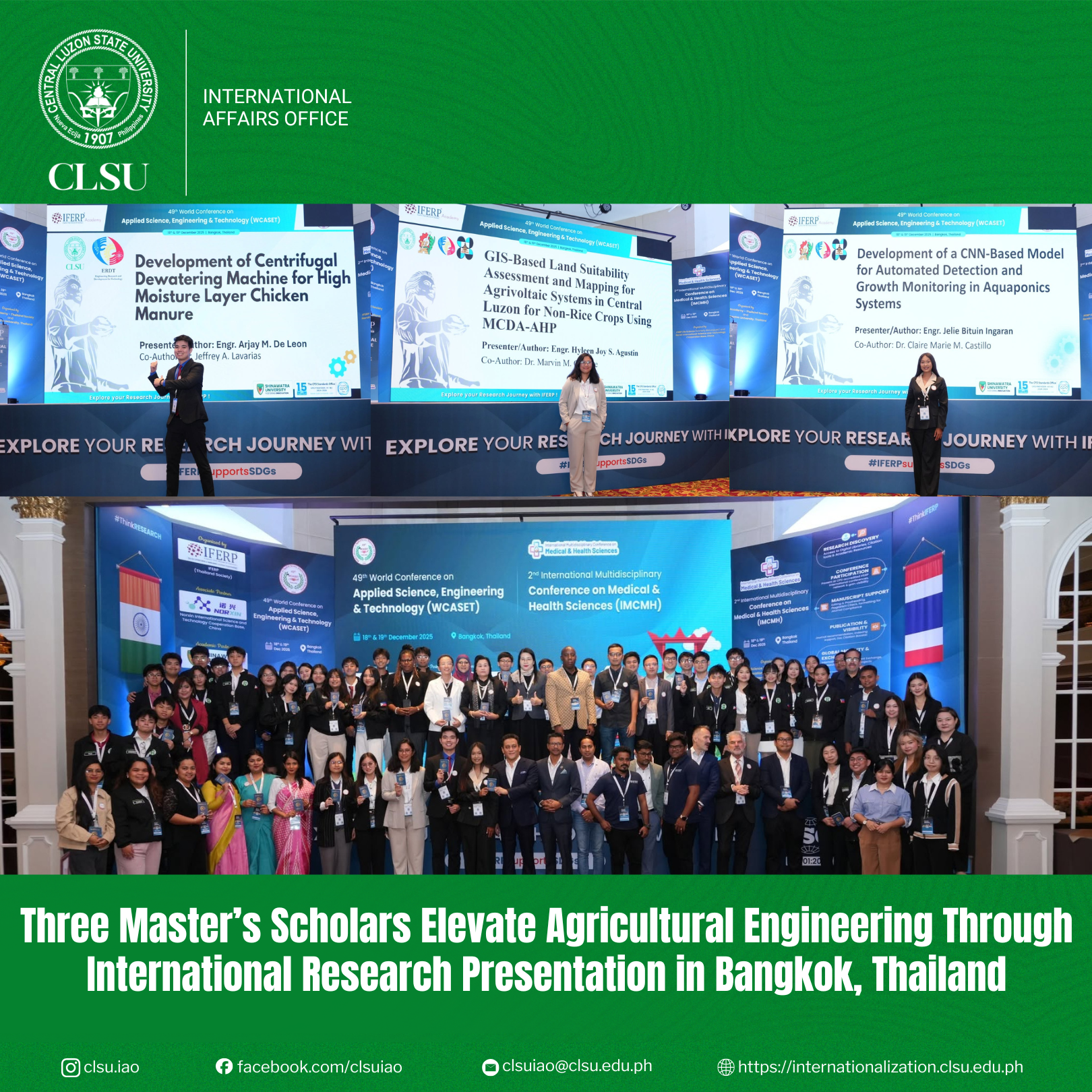
PEST D-Tech Team Engages in Agri-Robotics Collaboration During Taiwan Research Visit
Dr. Elaida R. Fiegalan, Dean of the Distance, Open, and Transnational University (DOT-Uni); Dr. Jonathan V. Fabula, Director of the Precision and Digital Agriculture Center (PreDiCt); and Ms. Marycris A. Manalang, faculty member of the Department of Information Technology, College of Engineering, Central Luzon State University (CLSU), participated in a short-term research visitation from June 4 to 5, 2025, at the Robotics and Medical Mechatronics Lab (RMML), Department of Biomechatronics Engineering, National Taiwan University (NTU).
The visit was part of the ongoing project titled “Monitoring and Management of Major Pests and Diseases of Corn and Onion through Robotics and Drone Technology (PEST D-Tech),” funded by the Department of Science and Technology-Philippine Council for Agriculture, Aquatic and Natural Resources Research and Development (DOST-PCAARRD) through the Agricultural Resources Management Research Division (ARMRD) under the Manila Economic and Cultural Office – Taipei Economic and Cultural Office (MECO-TECO) Joint Research Program (JRP).
Organized through the collaborative efforts of CLSU’s Institute for Climate Change and Environmental Management (ICCEM) and NTU, the visitation aimed to explore and strengthen the application of robotics and drone technologies in the agricultural sector. Over the four-day engagement, the PEST D-Tech team showcased their innovative work in managing pest and disease outbreaks in corn and onion crops—two key commodities in both the Philippines and Taiwan. The project has already demonstrated promising outcomes, including improved crop yields and the effective use of precision agriculture technologies in real-world settings.
During the visit, Dr. Fiegalan, Dr. Fabula, and Ms. Manalang presented the project’s core objectives, data-gathering strategies, and the technical processes behind model training and predictive analytics. They also held productive discussions with NTU researchers regarding the project’s progress and its upcoming phases, including field-level implementation.
Hosted by Dr. Ping-Lang Yen and the NTU team, the CLSU delegation received a warm welcome and was given a comprehensive tour of NTU’s premier facilities, including the NTU Art Museum, Agricultural Exhibition Hall, Center for International Agricultural Education and Academic Exchanges (CIAEAE), and NTU Experimental Farm. The visit also featured live demonstrations of unmanned aerial vehicles and unmanned ground vehicles used in greenhouse tomato harvesting.
Through this international partnership and the adoption of cutting-edge technologies, CLSU continues to reaffirm its commitment to sustainable agriculture, food security, and the advancement of precision farming practices that empower local communities and contribute to global agricultural development.
Recent News


